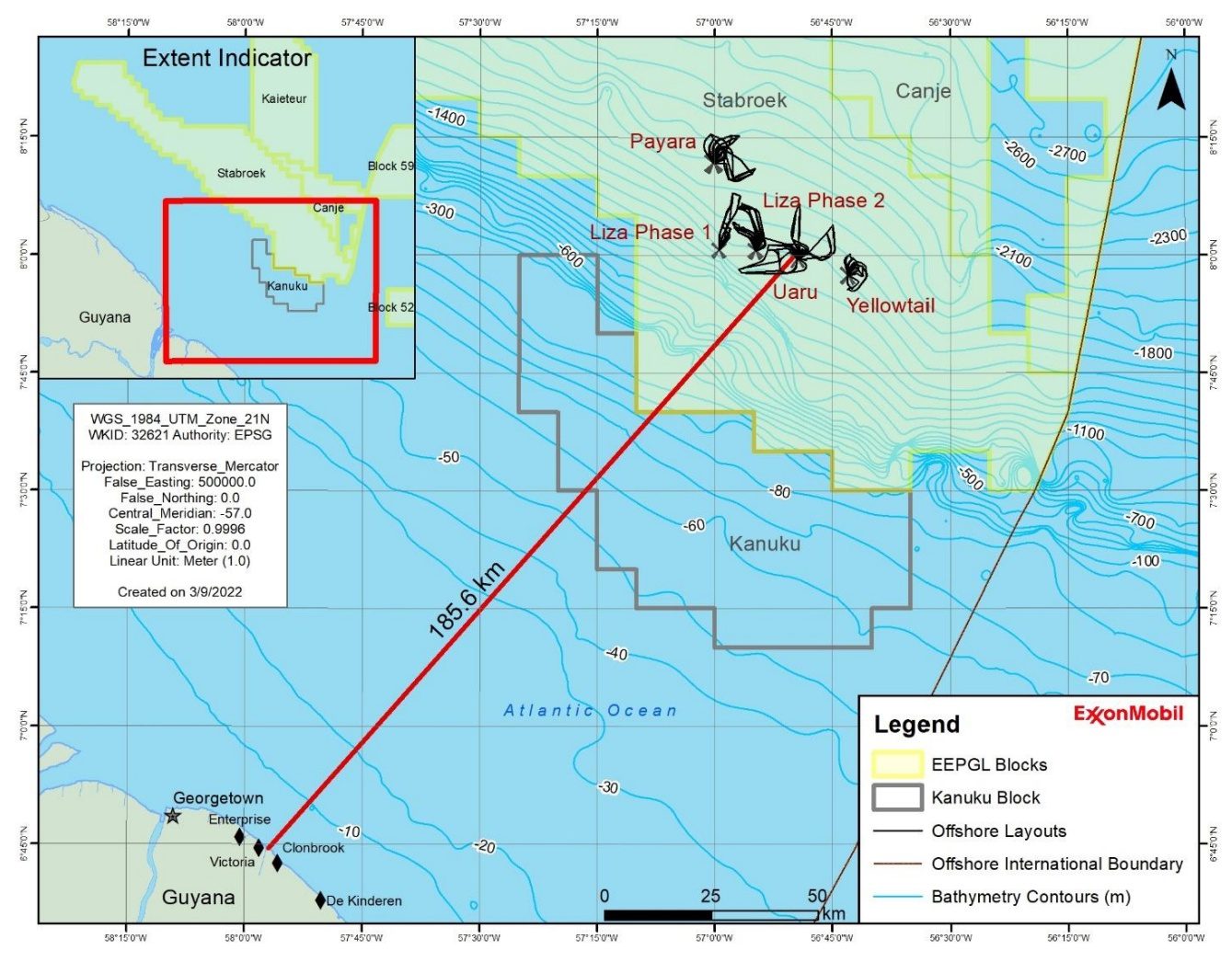ExxonMobil’s fifth Stabroek Block development – Uaru – is set to target three massive reservoirs, Uaru, Mako and Snoek, according to the final Terms and Scope for the project’s Environmental Impact Assessment, submitted to Guyana’s Environmental Protection Agency (EPA).
The Snoek discovery was announced in March 2017 and was the third oil discovery in the Stabroek Block. Norway’s Rystad Energy estimates a resource count of 461 million barrels of oil.
The Snoek- 1 well was drilled in a new reservoir, encountering 82 feet (25 meters) of high-quality, oil-bearing sandstone reservoirs. The well was safely drilled to 16,978 feet (5,175 meters) in 5,128 feet (1,563 meters) of water.
The addition of the Snoek Field is in keeping with previous statements that Exxon is targeting larger field developments and bigger ships to maximise production for each project. Snoek would also be a tieback well.
Rystad Energy had made assumptions that most of the commercial discoveries made in the Stabroek Block will be tapped as tiebacks. Larger discoveries, sufficient to warrant their own oil platforms, would be Tripletail, Longtail, Snoek, Hammerhead, Ranger and Pluma, Rystad Energy said.
The Uaru Development Project is could target up to 275,000 barrels per day (bpd), the highest production capacity of any floating production vessel planned for the Stabroek Block yet. First oil could be achieved as early as the fourth quarter of 2026.
ExxonMobil said that the project will target up to 76 developmental wells – including production, water injection and gas re-injection wells.
It will also involve the installation and operation of Subsea, Umbilicals, Risers and Flowlines (SURF) equipment; the installation and operation of a Floating, Production, Storage and Offloading (FPSO) vessel – inclusive of handling and offloading produced hydrocarbon; and ultimately, decommissioning.
Onshore logistical support facilities (such as shore bases, warehouses, storage and pipe yards, fabrication facilities, fuel supply facilities, and waste management facilities); and marine/aviation services will be utilised to support each stage of the Project, Exxon outlined.




